Book of Dragons
http://mep.papiko.com/index.php?LangDraw3
英語の場合、「誰が·どのように·どうした·何を·。どこで·いつ」の順番と決まっています「どのように·どこで·いつ」の位置は変わりますが「誰が·どうした·何を」をキチンと文中から引き出せれば英語はわかる、「誰が·どうした·何を」はほぼ不動です構造を読むためには、まず、語句をわかりやすいように区切ります。
「/」をいれる場所は下記の通り。
名詞の直後に「/」を入れます。
接頭句や副詞節が無い限り、最初の名詞は主語であり、他動詞の直後の名詞は目的語です。To-不定詞や、動名詞化した他動詞も目的語を取ります。前置詞の後の名詞は、前置詞の目的語になります。
述語動詞 の直後に「/」を入れます。
助動詞+動詞は一括りにします。動詞っぽい語句(動名詞、to-不定詞、現在分詞、過去分詞等)も直後に「/」を入れます。
前置詞を見たらその前で「/」を入れます。
前置詞を伴う語句が長い時は(カッコ)で括ってしまうと解り易いです。
"that" "who" 等の関係詞、"when" "if" 等の副詞節を導入する単語を見たら、{節}として括ります。
節の中も、S·Vの構造がありますから、文全体の構成要素が見え難くく、初めは大変かもしれませんが、慣れるとパターンが見えてきます。
"and" "but" 等の接続詞をみたら「/」を入れます。
何と何を接続しているか、キチンと見極めましょう
文の構造読みで一番重要なのは、名詞と動詞です。それから、前置詞、関係詞等、接続詞。副詞·形容詞は、スラッシュを入れている合間に見えてきます。

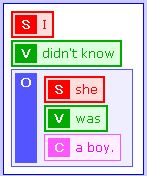
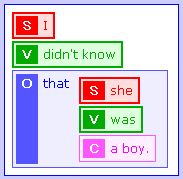
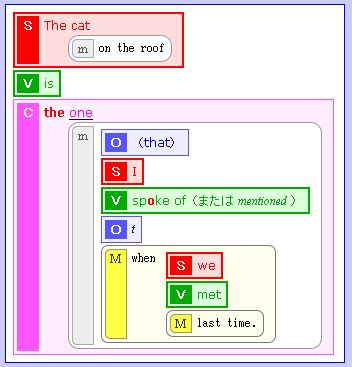
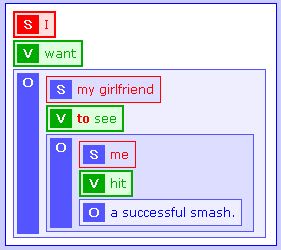
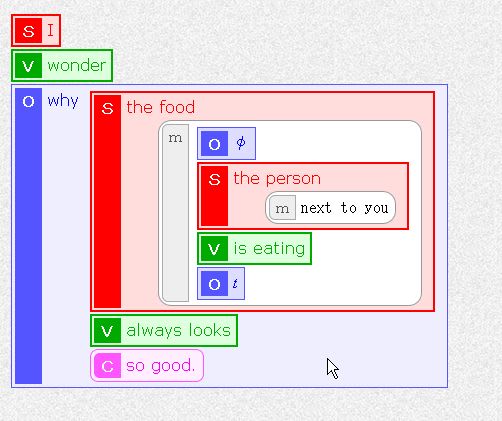
http://www.xiuyin.jp/listening4.html
より
語順構造イメージの考え方は次の3つです。
● 文は主要部であるS〔主語〕、V〔述語(動詞)〕、O〔目的語〕、C〔補語〕と修飾部から構成される。(O/C/修飾部は含まれない場合がある。)
●修飾部は主要部の外に付加されている場合と主要部の中に含まれている場合がある。また、修飾部は文になっている場合(S/V/O/C/修飾部を含む場合)がある。
● 文の主要部はSで始まる。Sに修飾部が含まれている場合はVが出てくるまでSが続く。S+Vまでで文が完成していない場合は次にOまたはCが続く。
Argentine Tango 25 Steps B Mat MaMoody& Mirabai Deranjas www.tangonation.com
キング牧師の有名な演説の最初の部分を使って語順構造イメージの例を示します。
I am happy to join with you today in what will go down in history as the greatest demonstration for freedom in the history of our nation.
(訳例:今日、我が国の歴史の中で、自由のための、最も偉大なデモンストレーションとして歴史に残るできごとに、あなた達と一緒に参加できて幸せです。)
この文の主要部と修飾部を次のように考えます。
S = “I”
V = “am”
C = “happy”
修飾部①= ”to join with you today”
修飾部②= ”in what will go down in history as the greatest demonstration for freedom in the history of our nation.”
ここで、修飾部②を更に主要部と修飾部に分解してみます。
S2 = “what”
V2 = “will go down”
修飾部③= “in history”
修飾部④= “as the greatest demonstration”
修飾部⑤= “for freedom”
修飾部⑥= “in the history of our nation”
※ 既出の S,V と区別するために S2,V2 としています。
文全体の語順構造は次のようになります。
S + V + C + ① + 【 S2+V2+ ③+ ④+ ⑤+ ⑥ 】
I am happy + to join with you today + 【 in what will go down + in history + as the greatest demonstration + for freedom + in the history of our nation. 】
演説の続きです。
Five score years ago, a great American, in whose symbolic shadow we stand today, signed theEmancipation Proclamation.
(訳例:100年前、ある偉大なアメリカ人(その人の象徴の影の中に我々は立っている)は奴隷解放宣言に署名しました。注:偉大なアメリカ人とはリンカーンのこと)
emancipation [ɪmænsəpeɪʃən]:(奴隷などの)解放
proclamation [prɑkləmeɪʃən] :宣言
この文の主要部と修飾部を次のように考えます。
修飾部① = “Five score years ago”
S = “a great American, in whose symbolic shadow we stand today”
V = “signed”
O = “the Emancipation Proclamation”
S は 修飾部② = “in whose symbolic shadow we stand today” を含んでいると考えます。( V までを S と考えます。)
ここで、修飾部②の部分を更に主要部と修飾部に分解してみます。
修飾部③ = “in whose symbolic shadow”
S2 = we
V2 = stand
修飾部④ = “today”
※ 既出の S,V と区別するために S2,V2 としています。
文全体の語順構造は次のようになります。
① + S + 【 ③+ S2 +V2+④ 】+ V + O
Five score years ago, a great American,【 in whose symbolic shadow we stand today 】, signed the EmancipationProclamation.
主要部だけを抜き出すと次のようなシンプルな文になります。
A great American signed the Emancipation Proclamation.
http://ja.scribd.com/doc/20584162/5-basic-sentence-patterns
S+ V+ IO+ DO
Subject + Verb + Indirect Object + Direct Object
1.You can sell him a piece of necklace.
a piece of
訳語 ひとつの;1まとまりの
備考 複数あるもののうちひとまとまリを示す表現
2.Can money bring me happiness?
bring
音節bring 発音記号/bríŋ/音声を聞く
【動詞】 【他動詞】
(音節brought 発音記号/brˈɔːt/)音声を聞く
1(ある場所へ)持ってくる,連れてくる 《★【類語】 fetch は行って持ってくる; take はある場所から他の場所へ持って[連れて]いく》:
a〔+間接目的語+直接目的語 / +目的語+前置詞+(代)名詞〕〈人に〉〈ものを〉持ってくる; 〔人に〕〈ものを〉持ってくる 〔to,for〕.
用例
She brought me some flowers.=She brought some flowers to me. 彼女は私に花を持ってきてくれた.
b〔+目的語+副詞(句)〕〈人・ものを〉(ある場所へ)連れて[持って]くる.
用例
He brought his wife to the party. 彼は奥さんをパーティーに連れてきた.
2a〈…を〉もたらす,招来する.
用例
The winter brought heavy snowfalls. その冬は何度か大雪が降った.
b〔+間接目的語+直接目的語 / +目的語+to+(代)名詞〕〈…に〉〈…を〉もたらす; 〔…に〕〈…を〉もたらす.
用例
Fine weather brought bumper crops to the Midwest. よい天候に恵まれて中西部に大豊作がもたらされた.
c〔+目的語+前置詞+(代)名詞〕〈…を〉〔…に〕もたらす 〔into,to,on,upon〕.
用例
The brisk walk brought a little color into her cheeks. 勢いよく歩いたので彼女のほおはほんのりと赤らんでいた.
3a〔+目的語+副詞(句)〕〈物事が〉〈人を〉(ある場所に)来させる 《★【比較】 日本語にする時には主語を副詞(句)的に訳すとよい》.
用例
What brings you here? 何の用でここへ来たのですか.
b〔+目的語+doing〕〈人に〉〈…するように〉しむける.
用例
A phone call from his secretary brought him hurrying to his office. 彼は秘書から電話がかかってきたので大急ぎで事務所へかけつけた.
4a〔+目的語+前置詞+(代)名詞〕〈…を〉〔ある状態に〕もってくる 〔to,into〕.
用例
bring a car to a stop 車を停止させる.
b〔+目的語+to do〕〈人を〉〈…する〉気にさせる.
用例
He wondered what brought her to see him. 彼はどういうことで彼女が自分に会ってみようという気になったのかと考えた.
c〔+目的語+to do〕[oneself で; 通例 cannot [could not] bring で] 〈…する〉気になる.
用例
I could not bring myself to believe it. どうしてもそれを信ずる気になれなかった.
5〔+目的語+against+(代)名詞〕〔…に対して〕〈訴訟・告訴・苦情などを〉提起する,起こす,申し立てる.
用例
He brought a charge against me. 彼は私を告訴した.
6a〈ものが〉〈収入・利益を〉もたらす; 〈いくらに〉売れる.
用例
The products of her dairy were bringing the highest prices in the market. 彼女の酪農場の製品は市場で最高値を呼んでいた.
b〔+間接目的語+直接目的語〕〈人に〉〈いくらの収入を〉もたらす.
用例
His paintings bring him £20,000 a year. 彼は絵をかいて年 2 万ポンドの収入がある.
3.They showed them a photograph.
4.Should I give my enemy a free hotdog?
5.I told them a joke.
6.I handed him a piece of paper.
7.I promised her a delicious dinner.
8.Andrew's uncle saves him a piece of cake.
9.That photographer teaches them mathematics.
10.Of the entire woman in the world, Michelle gave me a kiss.
11.The Beatles taught me love.
12.Meg offered her a ride home.
13.“I never promised you a rose garden,” the doctor said.
14.They reserved him a parking space
15.I gave him a book.
16.I leave her some flowers.
17.While you were sleeping, Holly made you a coffee.
18.Miss Johnson made him some coffee.
19.I bought her the vase.
20.His cousin often showed the visitors the painting.
21.Those barbers told her the shortest way.
22.That congressman tells them many lies.
23.I saved her a seat.
24.Ann Lynn hands him a piece of paper.
25.They sell him a ticket.
26.The farmer described to them the fishpond.
27.Jake left her a message.
28.Those teachers grant him his wish.
29.They promised her a delicious dinner.
30.They showed them a photograph.
31.Cathy envies him his good fortune.
32.Lorelei’s grandfather left her a huge amount of money.
33.The teacher brings her some food.34.The manager passed Jenny tequila.35.The woman wishes her a happy birthday36.I sent her a birthday present37.People should teach their children right manners.38.They showed them a photograph.39.The medical representative sold the woman an encyclopedia.40.Mother baked me a cake.41.I strike him a heavy blow.
42.That teacher offered her a ride home.
43.I bring her a small present.
44.They read the children a story.
45.The woman owe me sixty thousand pesos
46.Fred's wife leaves her a couple of books.
47.That politician bought her a gift.
48.His wife ordered him a drink.
49.He wrote her a very long letter.
50.The marksman suggested her the new Samsung phone.
http://ja.scribd.com/doc/20584162/5-basic-sentence-patterns
裏組曲『近代経済学』
http://mep.papiko.com/index.php?LangDraw3
英語の場合、「誰が·どのように·どうした·何を·。どこで·いつ」の順番と決まっています「どのように·どこで·いつ」の位置は変わりますが「誰が·どうした·何を」をキチンと文中から引き出せれば英語はわかる、「誰が·どうした·何を」はほぼ不動です構造を読むためには、まず、語句をわかりやすいように区切ります。
「/」をいれる場所は下記の通り。
名詞の直後に「/」を入れます。
接頭句や副詞節が無い限り、最初の名詞は主語であり、他動詞の直後の名詞は目的語です。To-不定詞や、動名詞化した他動詞も目的語を取ります。前置詞の後の名詞は、前置詞の目的語になります。
述語動詞 の直後に「/」を入れます。
助動詞+動詞は一括りにします。動詞っぽい語句(動名詞、to-不定詞、現在分詞、過去分詞等)も直後に「/」を入れます。
前置詞を見たらその前で「/」を入れます。
前置詞を伴う語句が長い時は(カッコ)で括ってしまうと解り易いです。
"that" "who" 等の関係詞、"when" "if" 等の副詞節を導入する単語を見たら、{節}として括ります。
節の中も、S·Vの構造がありますから、文全体の構成要素が見え難くく、初めは大変かもしれませんが、慣れるとパターンが見えてきます。
"and" "but" 等の接続詞をみたら「/」を入れます。
何と何を接続しているか、キチンと見極めましょう
文の構造読みで一番重要なのは、名詞と動詞です。それから、前置詞、関係詞等、接続詞。副詞·形容詞は、スラッシュを入れている合間に見えてきます。






http://www.xiuyin.jp/listening4.html
より
語順構造イメージの考え方は次の3つです。
● 文は主要部であるS〔主語〕、V〔述語(動詞)〕、O〔目的語〕、C〔補語〕と修飾部から構成される。(O/C/修飾部は含まれない場合がある。)
●修飾部は主要部の外に付加されている場合と主要部の中に含まれている場合がある。また、修飾部は文になっている場合(S/V/O/C/修飾部を含む場合)がある。
● 文の主要部はSで始まる。Sに修飾部が含まれている場合はVが出てくるまでSが続く。S+Vまでで文が完成していない場合は次にOまたはCが続く。
Argentine Tango 25 Steps B Mat MaMoody& Mirabai Deranjas www.tangonation.com
キング牧師の有名な演説の最初の部分を使って語順構造イメージの例を示します。
I am happy to join with you today in what will go down in history as the greatest demonstration for freedom in the history of our nation.
(訳例:今日、我が国の歴史の中で、自由のための、最も偉大なデモンストレーションとして歴史に残るできごとに、あなた達と一緒に参加できて幸せです。)
この文の主要部と修飾部を次のように考えます。
S = “I”
V = “am”
C = “happy”
修飾部①= ”to join with you today”
修飾部②= ”in what will go down in history as the greatest demonstration for freedom in the history of our nation.”
ここで、修飾部②を更に主要部と修飾部に分解してみます。
S2 = “what”
V2 = “will go down”
修飾部③= “in history”
修飾部④= “as the greatest demonstration”
修飾部⑤= “for freedom”
修飾部⑥= “in the history of our nation”
※ 既出の S,V と区別するために S2,V2 としています。
文全体の語順構造は次のようになります。
S + V + C + ① + 【 S2+V2+ ③+ ④+ ⑤+ ⑥ 】
I am happy + to join with you today + 【 in what will go down + in history + as the greatest demonstration + for freedom + in the history of our nation. 】
演説の続きです。
Five score years ago, a great American, in whose symbolic shadow we stand today, signed theEmancipation Proclamation.
(訳例:100年前、ある偉大なアメリカ人(その人の象徴の影の中に我々は立っている)は奴隷解放宣言に署名しました。注:偉大なアメリカ人とはリンカーンのこと)
emancipation [ɪmænsəpeɪʃən]:(奴隷などの)解放
proclamation [prɑkləmeɪʃən] :宣言
この文の主要部と修飾部を次のように考えます。
修飾部① = “Five score years ago”
S = “a great American, in whose symbolic shadow we stand today”
V = “signed”
O = “the Emancipation Proclamation”
S は 修飾部② = “in whose symbolic shadow we stand today” を含んでいると考えます。( V までを S と考えます。)
ここで、修飾部②の部分を更に主要部と修飾部に分解してみます。
修飾部③ = “in whose symbolic shadow”
S2 = we
V2 = stand
修飾部④ = “today”
※ 既出の S,V と区別するために S2,V2 としています。
文全体の語順構造は次のようになります。
① + S + 【 ③+ S2 +V2+④ 】+ V + O
Five score years ago, a great American,【 in whose symbolic shadow we stand today 】, signed the EmancipationProclamation.
主要部だけを抜き出すと次のようなシンプルな文になります。
A great American signed the Emancipation Proclamation.
http://ja.scribd.com/doc/20584162/5-basic-sentence-patterns
S+ V+ IO+ DO
Subject + Verb + Indirect Object + Direct Object
1.You can sell him a piece of necklace.
a piece of
訳語 ひとつの;1まとまりの
備考 複数あるもののうちひとまとまリを示す表現
2.Can money bring me happiness?
bring
音節bring 発音記号/bríŋ/音声を聞く
【動詞】 【他動詞】
(音節brought 発音記号/brˈɔːt/)音声を聞く
1(ある場所へ)持ってくる,連れてくる 《★【類語】 fetch は行って持ってくる; take はある場所から他の場所へ持って[連れて]いく》:
a〔+間接目的語+直接目的語 / +目的語+前置詞+(代)名詞〕〈人に〉〈ものを〉持ってくる; 〔人に〕〈ものを〉持ってくる 〔to,for〕.
用例
She brought me some flowers.=She brought some flowers to me. 彼女は私に花を持ってきてくれた.
b〔+目的語+副詞(句)〕〈人・ものを〉(ある場所へ)連れて[持って]くる.
用例
He brought his wife to the party. 彼は奥さんをパーティーに連れてきた.
2a〈…を〉もたらす,招来する.
用例
The winter brought heavy snowfalls. その冬は何度か大雪が降った.
b〔+間接目的語+直接目的語 / +目的語+to+(代)名詞〕〈…に〉〈…を〉もたらす; 〔…に〕〈…を〉もたらす.
用例
Fine weather brought bumper crops to the Midwest. よい天候に恵まれて中西部に大豊作がもたらされた.
c〔+目的語+前置詞+(代)名詞〕〈…を〉〔…に〕もたらす 〔into,to,on,upon〕.
用例
The brisk walk brought a little color into her cheeks. 勢いよく歩いたので彼女のほおはほんのりと赤らんでいた.
3a〔+目的語+副詞(句)〕〈物事が〉〈人を〉(ある場所に)来させる 《★【比較】 日本語にする時には主語を副詞(句)的に訳すとよい》.
用例
What brings you here? 何の用でここへ来たのですか.
b〔+目的語+doing〕〈人に〉〈…するように〉しむける.
用例
A phone call from his secretary brought him hurrying to his office. 彼は秘書から電話がかかってきたので大急ぎで事務所へかけつけた.
4a〔+目的語+前置詞+(代)名詞〕〈…を〉〔ある状態に〕もってくる 〔to,into〕.
用例
bring a car to a stop 車を停止させる.
b〔+目的語+to do〕〈人を〉〈…する〉気にさせる.
用例
He wondered what brought her to see him. 彼はどういうことで彼女が自分に会ってみようという気になったのかと考えた.
c〔+目的語+to do〕[oneself で; 通例 cannot [could not] bring で] 〈…する〉気になる.
用例
I could not bring myself to believe it. どうしてもそれを信ずる気になれなかった.
5〔+目的語+against+(代)名詞〕〔…に対して〕〈訴訟・告訴・苦情などを〉提起する,起こす,申し立てる.
用例
He brought a charge against me. 彼は私を告訴した.
6a〈ものが〉〈収入・利益を〉もたらす; 〈いくらに〉売れる.
用例
The products of her dairy were bringing the highest prices in the market. 彼女の酪農場の製品は市場で最高値を呼んでいた.
b〔+間接目的語+直接目的語〕〈人に〉〈いくらの収入を〉もたらす.
用例
His paintings bring him £20,000 a year. 彼は絵をかいて年 2 万ポンドの収入がある.
3.They showed them a photograph.
4.Should I give my enemy a free hotdog?
5.I told them a joke.
6.I handed him a piece of paper.
7.I promised her a delicious dinner.
8.Andrew's uncle saves him a piece of cake.
9.That photographer teaches them mathematics.
10.Of the entire woman in the world, Michelle gave me a kiss.
11.The Beatles taught me love.
12.Meg offered her a ride home.
13.“I never promised you a rose garden,” the doctor said.
14.They reserved him a parking space
15.I gave him a book.
16.I leave her some flowers.
17.While you were sleeping, Holly made you a coffee.
18.Miss Johnson made him some coffee.
19.I bought her the vase.
20.His cousin often showed the visitors the painting.
21.Those barbers told her the shortest way.
22.That congressman tells them many lies.
23.I saved her a seat.
24.Ann Lynn hands him a piece of paper.
25.They sell him a ticket.
26.The farmer described to them the fishpond.
27.Jake left her a message.
28.Those teachers grant him his wish.
29.They promised her a delicious dinner.
30.They showed them a photograph.
31.Cathy envies him his good fortune.
32.Lorelei’s grandfather left her a huge amount of money.
33.The teacher brings her some food.34.The manager passed Jenny tequila.35.The woman wishes her a happy birthday36.I sent her a birthday present37.People should teach their children right manners.38.They showed them a photograph.39.The medical representative sold the woman an encyclopedia.40.Mother baked me a cake.41.I strike him a heavy blow.
42.That teacher offered her a ride home.
43.I bring her a small present.
44.They read the children a story.
45.The woman owe me sixty thousand pesos
46.Fred's wife leaves her a couple of books.
47.That politician bought her a gift.
48.His wife ordered him a drink.
49.He wrote her a very long letter.
50.The marksman suggested her the new Samsung phone.
http://ja.scribd.com/doc/20584162/5-basic-sentence-patterns
裏組曲『近代経済学』











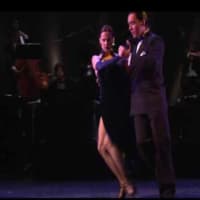

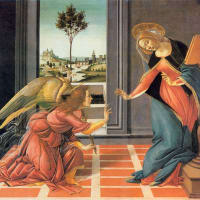

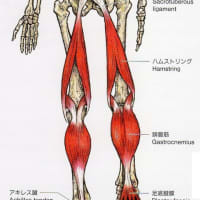
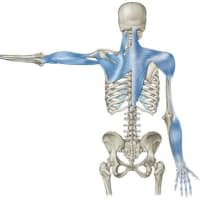

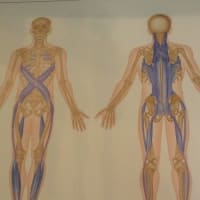
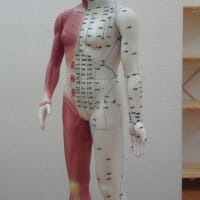
※コメント投稿者のブログIDはブログ作成者のみに通知されます